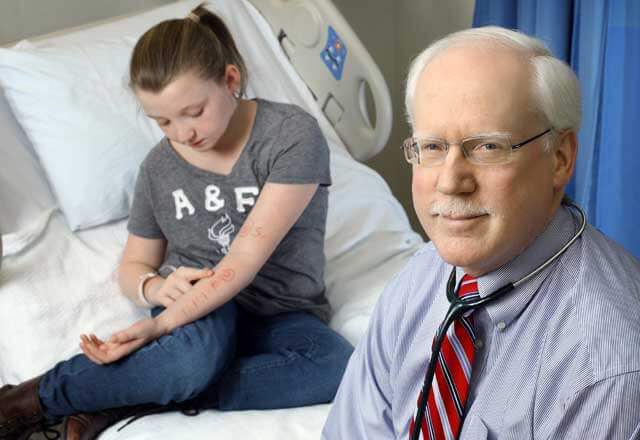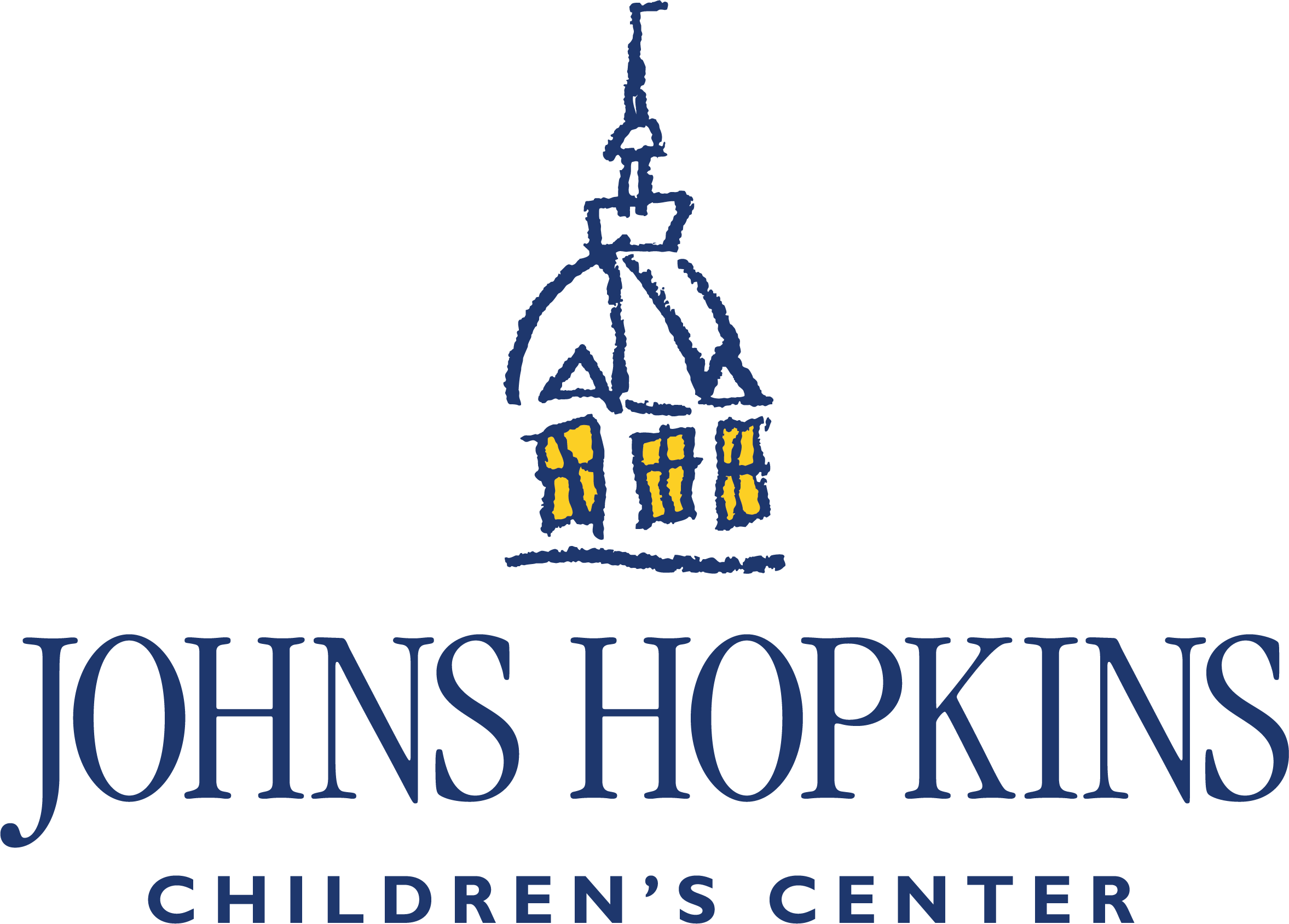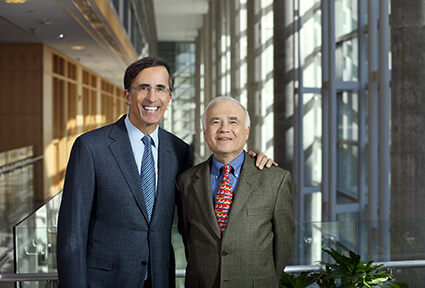Pediatric Allergy, Immunology and Rheumatology

Pediatric allergist Robert Wood with a patient being treated with oral immunotherapy.
The mission of the Eudowood Division of Allergy, Immunology and Rheumatology is to provide top-notch clinical services, conduct cutting-edge research and train future pediatric allergist-immunologists for careers in academic medicine. The division focuses on both allergic disease — including food allergy, asthma and environmental allergies — as well as immunodeficiency disorders, and it is recognized internationally for its clinical and research expertise in all these areas.
Our Pediatric Allergy Clinic provides state-of-the-art care for children with asthma and allergic diseases. In addition to its world-renowned programs in food allergy, the clinic cares for children of all ages with asthma, allergic rhinitis, eosinophilic esophagitis, atopic dermatitis, drug allergy and stinging insect allergy.
Our Immunodeficiency Clinic, the Pediatric Immunology Laboratory and the Ataxia-Telangiectasia (A-T) Clinical Center are directed by Howard Lederman, M.D.. Our Immunodeficiency Clinic and the associated Pediatric Immunology Laboratory provides comprehensive care to individuals with primary immunodeficiency diseases. We diagnose and manage adults and children with a wide variety of diseases, including common variable immunodeficiency, severe combined immunodeficiency disease, chronic granulomatous disease and many others. Honoring our heritage as leaders in research, our clinic has identified two new forms of primary immunodeficiency disease, BLINK and IPEX, and is the first to show bone marrow transplant as a cure for this disease.
Our Ataxia-Telangiectasia Clinical Center is the only multidisciplinary clinic of its kind in Maryland and the first clinical center in the world for this rare disease. Our team, which includes specialists in immunology, neurology, pulmonology, speech-language pathology and nutrition, provides comprehensive care and innovative clinical research for people with A-T. Since its inception, the A-T center has extended the lifespan of its patients by almost 50 percent.
The fellowship training program in pediatric allergy and immunology is also recognized as one of the world’s best. The division has now trained more than 30 pediatric allergist-immunologists who represent many of the leaders in allergy and immunology in the United States and abroad.
Conditions We Treat
- Immunodeficiencies
- Environmental allergies
- Allergic conjunctivitis
- Allergic rhinitis
- Anaphylaxis
Emmy's Food Allergy Journey
Emmy’s food allergy journey began early in life after an anaphylactic reaction to a formula bottle at six months old. From this, her family learned of Emmy’s life threatening allergies to dairy, wheat, gluten, rye, barely, eggs, peanuts, tree nuts, sesame seeds, and garlic. She was accepted into one of Dr. Robert Wood’s oral food challenges.
Contact Us
Make an Appointment
Appointments: 443-997-5437 (KIDS)
Fax: 410-955-0229
Patient concerns: 410-955-5883
The Pediatric Allergy Clinic is located in the David M. Rubenstein Child Health Building. Patients participating in clinical trials are seen in the Pediatric Clinical Research Unit on level 9 of the Johns Hopkins Children's Center.
Ataxia-Telangiectasia Clinical Center
Appointments: 1-800-610-5691
Fax: 410-955-0229
Ataxia-Telangiectasia Clinical Center is staffed by a multidisciplinary team that includes experts in neurology, feeding and swallowing disorders, pulmonology and immunology. More than 300 patients from all over the world have been treated by the A-T clinic team.
Primary Immune Deficiency Clinic
Appointments: 410-955-5883
Fax: 410-955-0229
Patient concerns: 410-955-5883
The Immunodeficiency Clinic provides diagnostic and management services for adults and children with a wide range of primary immunodeficiency diseases, including severe combined immunodeficiency, X-linked agammaglobulinemia, common variable immunodeficiency and chronic granulomatous disease. The clinic sees over 500 patients annually.




